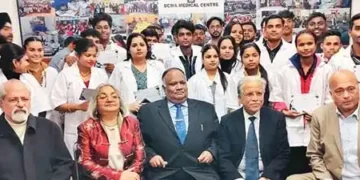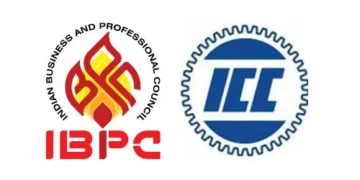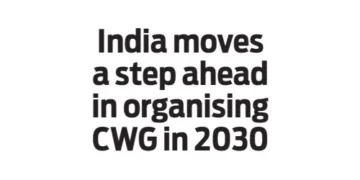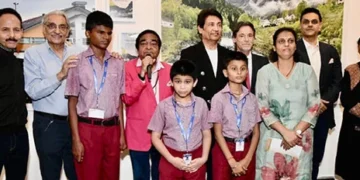Blitz Bureau
Aconvocation ceremony for the 2nd and 3rd batch of trainees of the Digital Health Assistant (DHA) programme was held on December 17 at the Delhi Commonwealth Women’s Association (DCWA) medical facility training centre by the Society for Administration of Telemedicine and Healthcare Informatics (SATHI).
The induction of 4th batch of students also took place at the event. The programme, sponsored by Ion Foundation, was a groundbreaking effort that bridged the healthcare workforce gap with AI-ready students.
As there is a lack of IT proficiency among medical professionals, the DHA programme provides a cost-effective and time-efficient path to a rewarding career in healthcare for school pass- outs.
It provides strong data management skills for AI applications, proficiency in tele-health and other digital healthcare tools along with deep understanding of patient care and support.
SATHI patron Padmashri Sneh Bhargava underscored the urgent need for reforms in the India’s healthcare system, a legacy of the British era that prioritised western medicine over AYUSH practices. This imbalance, coupled with a severe shortage of healthcare workers, has resulted in limited access to quality care for a significant portion of the population, she said.
There is a stark disparity between doctors and low-level care providers hindering effective healthcare delivery at the grassroots level. SATHI aims to rectify this by significantly moving towards a more balanced ratio of seven junior level workers to one doctor. Furthermore, the initiative recognises the valuable contributions of AYUSH systems like Ayurveda, Yoga, and Naturopathy. By integrating these traditional practices into the mainstream healthcare system, SATHI aims to provide a more holistic and comprehensive approach to healthcare. “Digital health is a national need.
Our programme offers a practical solution to a national issue,” said Dr Shashi Gogia, President of SATHI. “By providing a bridge between aspiring healthcare professionals and the workforce, we can empower more individuals to contribute to a healthier future while full-filling vital roles in the healthcare system,” he said.






























